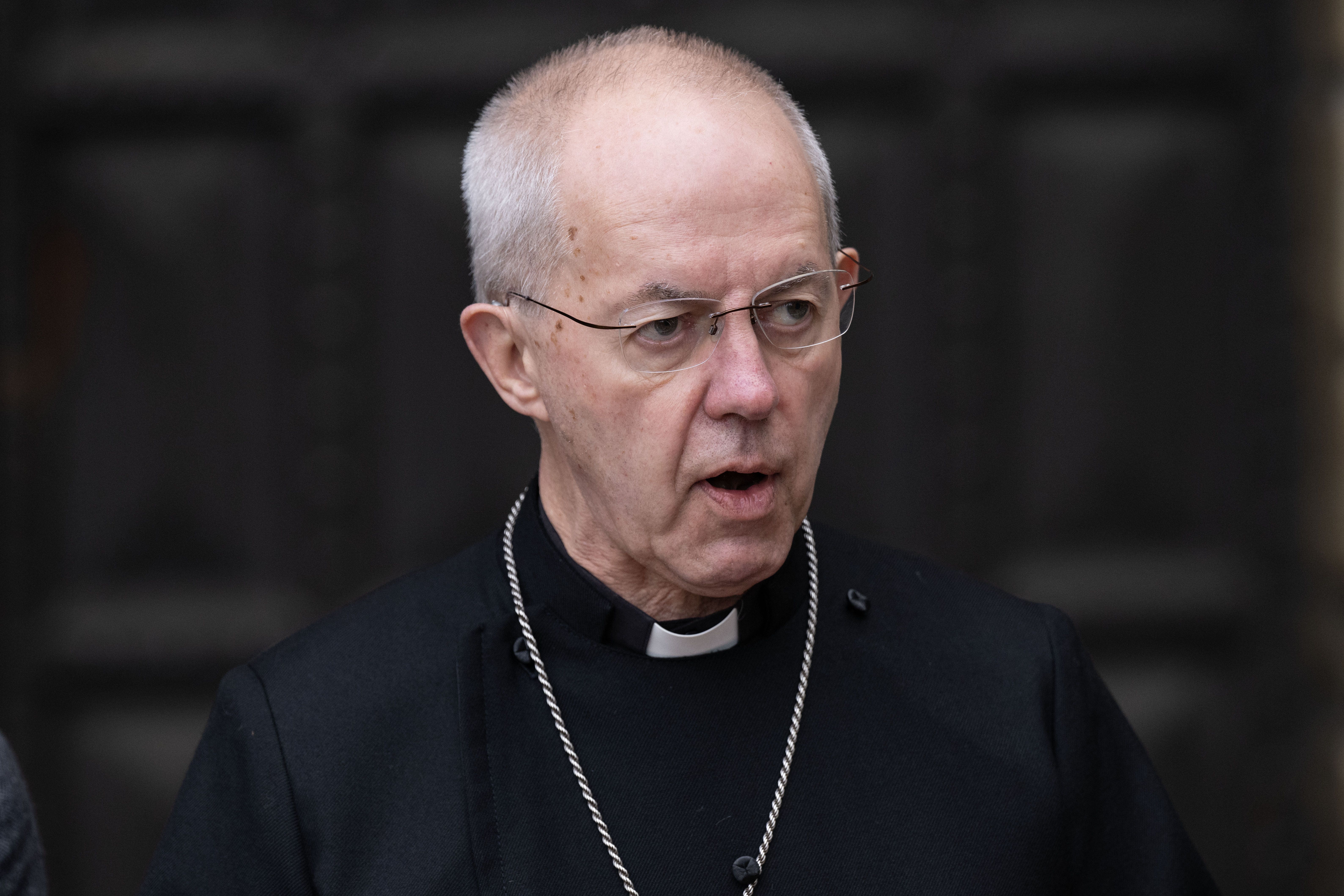Visa changes will have ‘negative impact’ on family relationships, says Welby
The Archbishop of Canterbury made his comments during his annual House of Lords debate.

Your support helps us to tell the story
From reproductive rights to climate change to Big Tech, The Independent is on the ground when the story is developing. Whether it's investigating the financials of Elon Musk's pro-Trump PAC or producing our latest documentary, 'The A Word', which shines a light on the American women fighting for reproductive rights, we know how important it is to parse out the facts from the messaging.
At such a critical moment in US history, we need reporters on the ground. Your donation allows us to keep sending journalists to speak to both sides of the story.
The Independent is trusted by Americans across the entire political spectrum. And unlike many other quality news outlets, we choose not to lock Americans out of our reporting and analysis with paywalls. We believe quality journalism should be available to everyone, paid for by those who can afford it.
Your support makes all the difference.The Archbishop of Canterbury has warned new family visa rules will have a “negative impact” on married and family relationships.
Justin Welby said the Government is “rightly concerned” with bringing down legal migration figures, although he voiced concerns about parts of the Government’s latest restrictions.
Overseas health and care workers will be prevented from bringing their dependants to the UK, while Britons must be earning at least £38,700 to sponsor foreign family members wishing to gain a visa under the new rules.
There is a cost to be paid in terms of the negative impact this will have on married and family relationships for those who live and work and contribute to our life together, particularly in social care
The sharp raising of the threshold – more than double the previous limit of £18,600 – to above the median income for a full-time employee has prompted criticism.
Net migration hit a record 745,000 in 2022, although it is estimated to have fallen to 672,000 in the year to June 2023.
The archbishop, on how the Government can promote the “flourishing” of families and households, told the House of Lords: “The first is ensuring that whenever a policy is created, in any Government department, its impact on families and households is considered and acted upon.
“Does it enable the bonds of love within the family and the household to flourish? Does it support and strengthen relationships?
The state is useful to the family, the family is indispensable to the state. A lack of strong families undermines our whole society. Government needs families to work. They must not set a series of hurdles for them to jump over
“This week we hear that many people in this country will be prevented from living together with their spouse, child or children … as a result of a big increase in the minimum income requirement for family visas.
“The Government is rightly concerned with bringing down the legal migration figures and I’m not, you’ll be relieved to know, going into the politics of that.
“But there is a cost to be paid in terms of the negative impact this will have on married and family relationships for those who live and work and contribute to our life together, particularly in social care.”
The archbishop said the “family test” was introduced in 2014 and seeks to introduce the family or household perspective to the policy-making process in every Whitehall department, adding it should be on the front of every piece of legislation.
He went on to say: “The state is useful to the family, the family is indispensable to the state. A lack of strong families undermines our whole society.
“Government needs families to work. They must not set a series of hurdles for them to jump over.”
The End Child Poverty campaign estimates removing the two-child limit (on benefit entitlement) will lift a quarter-of-a-million children out of poverty. The moral case is beyond any question ...
The archbishop went on to press for the removal of a policy that limits benefit entitlement for those who have more than two children.
He said: “The End Child Poverty campaign estimates removing the two-child limit will lift a quarter-of-a-million children out of poverty.
“The moral case is beyond any question, yet the unfair penalty applied to additional children affects their educational outcomes, mental and physical health, their likelihood to require public support from public services later on.
“It is not a good policy. Will the Government and the Opposition, should they become the Government at some point, consider removing the two-child limit and addressing other systems and policy choices which keep family in poverty?”
The archbishop went on to encourage all political parties to “place flourishing families and households as a key objective” within their manifestos at the next general election.
His comments came during the annual debate he leads in the House of Lords, with this year’s topic “Love Matters”, The Report Of The Archbishops’ Commission On Families and Households.
Work and pensions minister Viscount Younger of Leckie did not respond directly to the archbishop’s visa concerns but he noted he actively supports the “family test” and remains committed to promoting it across government.
On the two-child limit, the minister said: “On inception, the policy had two clear intentions: first, to make Universal Credit fairer and more affordable to the taxpayer; secondly, to ensure those supporting themselves through benefits face the same financial choices around the number of children they can afford to have as those not on benefits.
“The House will be aware of the exceptions that apply. Child benefit continues to be paid for all children in eligible families.”